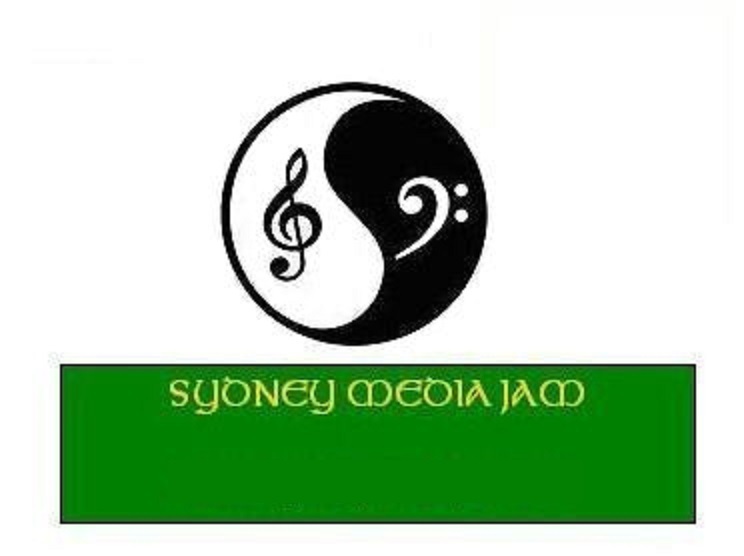 Music has been devalued and led nowhere by a lost market. Hundreds of modern companies can’t do what Ed Sullivan did every week: Make new music available regularly. MTV wimped out and became a “TV station”, whatever that is, and as though anyone cares.
Music has been devalued and led nowhere by a lost market. Hundreds of modern companies can’t do what Ed Sullivan did every week: Make new music available regularly. MTV wimped out and became a “TV station”, whatever that is, and as though anyone cares.
McMusic as a business model has been a major flop, even by its own low standards. Unlike McDonalds, it doesn’t even guarantee a new meal, just gives the impression that there’ll be “something”. Compare this to the 60s, when with old tech they could get any number of new acts selling every week.
This is pitiful. A new Beatles or anyone else would find it hard to even get started in this quagmire of questionable quality. YouTube is launching more acts than the entire industry, every day.
First, a few basics:
State of the art of music
Compared to the heyday of popular music, it’s a dead zone. Genre music has become a plague. 30 years of failed rap tracks hasn’t sent any sort of message to anyone. For those wondering, the success rate of music in commercial terms really is the same 1%, slightly mitigated by audiences, not the industry.
As usual, marketing is in total disconnect with the audience, but in this case it’s a huge, extremely diverse market. There are billions of outlets and products, and no focus. No simple way to get music from A to B. Who do they think buys this stuff, anyway? The market is totally out of touch with the audience, and despises it, as usual.
(Don’t know who gave these freeloaders the idea they’re superior beings. Suffice to say you’re not, and you can prove it.)
The core issue here, ironically, isn’t sales or marketing. It’s music. Most of the failed stuff persists because there’s no commercial way of proving it doesn’t work. “This is rap”, so good bad or indifferent, out it comes, like an enema. If there was any working commercial criteria, not just selective charting, this stuff would have died 20 years ago. So another generation of artists and bands staggers into oblivion, killed by their market.
It’s interesting to note that Adele and many of the female hook singers have gone almost full circle back to catchy vocals with some grunt, which is what really started popular music all the way back to the Andrews Sisters. The truth is that real music gets more reception than tone-deaf patches and loops ever will.
Then there’s the slack, sorry sight of the idea of being an artist. Apparently being two dimensional is a plus. Being an artist, anyone under 40 may not know, is a little more complex than that. Sampling be damned. You can sample your head off, it doesn’t make you an artist or a musician. A chicken could do that and do it better. It makes you an aggregator of other people’s talent. If you think that leads to fame and glory, you’ve been brainwashed. Go back to plumbing, it’s safer.
Patches or music
Then there’s the obsolete patches and lousy harmonics. Most of the patches you hear like saw waves, etc. date from as far back as the 1960s, 70s, or even earlier in some cases. (Ironically, I heard a few hip hop tracks where they’re getting out of that, but the mainstream is all old stuff.)
This is just laziness. It’s easy to get accurate harmonics out of a MIDI. It’s the crappy software and indifferent plodding bastards churning out patches who aren’t helping. It’s like you have a choice between patches or music, but not both.

Music and money
Any pro musician will tell you that the money goes into other people’s pockets. It’s another case of the people who do the least work getting the most money. In this case, any number of hangers-on can be grafted on to a production budget, and the parasites do well. It doesn’t cost millions to produce anything. Never has. It costs millions to provide for that nice look people want to see in their bank statements.
This means money which could be used for new product goes begging. The indies are a bit less insane, but that’s mainly because they have less money to be insane with. The result is a lot of multimillionaires crying poor on a daily basis.
Contracts can be traps. You can pay for playing your own music in your own home, with a bit of help from a standard contract. You wind up paying for extras against your royalties. To hell with that. The same people who sue people on welfare for ridiculous amounts of money for sharing a few tracks will also rip out your bone marrow if they can.
If you do have money, you’ll also have more friends than a busload of nymphomaniacs in a prison. The bloodsucking never ends, and that eventually trashes so many people. Nepotism, territory, call it what you will, it’s a hate factory.
Future music
So much for the weather report for the last 50 years. This crap is the ambient noise of the past. None of the scum are necessary, and the music world needs cash as well reliable outlets and exposure.
What’s needed:
High capacity online channels for maximising new music releases. Like YouTube, but better targeted. Online TV with dedicated channels for “breaking music” could do the job.
Standardized sales outlets. To hell with DRM, the only music that’s digitally protected is music that’s not playable. It’s so easy to get around it’s absurd.
An integrated music press, in synch with new product. Enough of the insider “my little friend wants headlines” garbage, start focusing on delivering product, not hype.
Royalties: Musicians CAN own 100% of their property. Anyone else gets a percentage, on strict contract terms. Musicians shouldn’t pay more than 20% for any kind of commercial distribution.
Recording: Kill the recording black holes for money and excuses for ripoffs. Recording should be on hourly costs, and no damn “creative accounting” for eating multi-million dollar contracts with production ripoffs and fraudulent contract rorts.
Gigs: Standard minimum rates. No unpaid gigs. Musicians should work like Actors Equity.
Copyright: A form of musical Copyscape should be introduced to shut down the litigation industry permanently. It’s been highly destructive, and it’s hardly been helpful to people with legitimate complaints about copyright infringement.
Business models: Musicians need to know how to be viable. This is an animalistic industry, and it’s no place for talent as it is. Suits don’t make music. Musicians make music. Get the priorities straight and let musicians do their jobs.
Destroy the blocks to effective outlets: Monopolistic distribution serves a useful purpose in creating focal points, but does the opposite when everybody’s little friend starts charging for exposure. The “insider trading” of music is just as damaging as lack of exposure. It just creates bottlenecks, particularly when there are so many people looking for outlets.
The fact is that radio is almost the only place you can hear a supply of new and different music. Radio is limited in any conventional broadcast context. Should be online, like WWOZ New Orleans, and it can go global.
New music
The other big area is getting new musical forms out of the coffin of generic distribution. Music is music. Rock is anything. Jazz is everything. Classical can be both. Add technology, ideas and the new music needs to breathe.
Restricting musical forms is absurd. Some people don’t even know what music is, and it looks like most of them are in the music industry. They think it’s sound. It’s more than sound. It’s part of everyone’s life, often a big part, and you guys are trying to make it a cost center?
Arts are always restricted and diverted by the mainstream. People with less imagination than the average dunghill are dictating culture. Music suffers from too much imagery and not enough rights for listeners. The market could learn a lot from people who actually listen to music.
Music has to be reinvented to reflect not only the culture, but itself as it now is. It can’t do that, at the moment. Lose the losers and get on with making it accessible in some sort of meaningful form. The audience will take care of the rest.